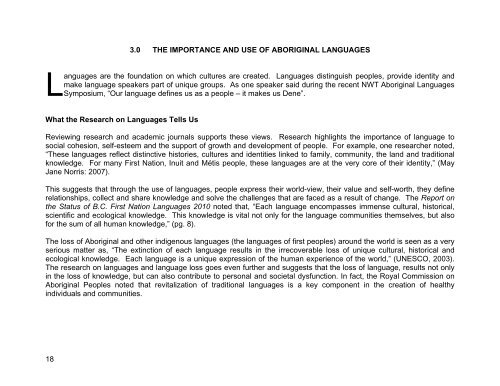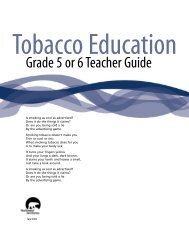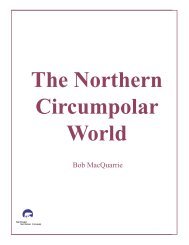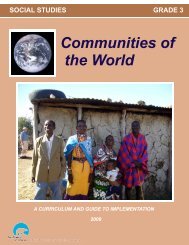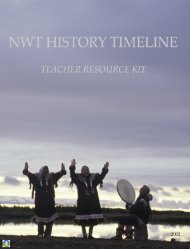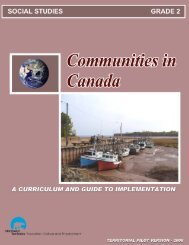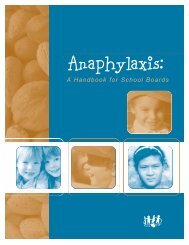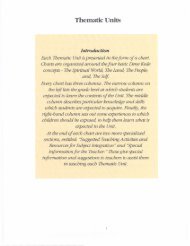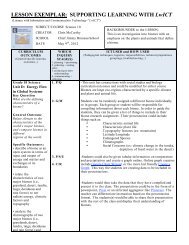Northwest Territories Aboriginal Languages Plan A Shared ...
Northwest Territories Aboriginal Languages Plan A Shared ...
Northwest Territories Aboriginal Languages Plan A Shared ...
- No tags were found...
Create successful ePaper yourself
Turn your PDF publications into a flip-book with our unique Google optimized e-Paper software.
3.0 THE IMPORTANCE AND USE OF ABORIGINAL LANGUAGES<strong>Languages</strong> are the foundation on which cultures are created. <strong>Languages</strong> distinguish peoples, provide identity andmake language speakers part of unique groups. As one speaker said during the recent NWT <strong>Aboriginal</strong> <strong>Languages</strong>Symposium, “Our language defines us as a people – it makes us Dene”.What the Research on <strong>Languages</strong> Tells UsReviewing research and academic journals supports these views. Research highlights the importance of language tosocial cohesion, self-esteem and the support of growth and development of people. For example, one researcher noted,“These languages reflect distinctive histories, cultures and identities linked to family, community, the land and traditionalknowledge. For many First Nation, Inuit and Métis people, these languages are at the very core of their identity,” (MayJane Norris: 2007).This suggests that through the use of languages, people express their world-view, their value and self-worth, they definerelationships, collect and share knowledge and solve the challenges that are faced as a result of change. The Report onthe Status of B.C. First Nation <strong>Languages</strong> 2010 noted that, “Each language encompasses immense cultural, historical,scientific and ecological knowledge. This knowledge is vital not only for the language communities themselves, but alsofor the sum of all human knowledge,” (pg. 8).The loss of <strong>Aboriginal</strong> and other indigenous languages (the languages of first peoples) around the world is seen as a veryserious matter as, “The extinction of each language results in the irrecoverable loss of unique cultural, historical andecological knowledge. Each language is a unique expression of the human experience of the world,” (UNESCO, 2003).The research on languages and language loss goes even further and suggests that the loss of language, results not onlyin the loss of knowledge, but can also contribute to personal and societal dysfunction. In fact, the Royal Commission on<strong>Aboriginal</strong> Peoples noted that revitalization of traditional languages is a key component in the creation of healthyindividuals and communities.18


